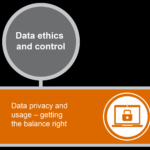How blockchain is transforming digital revenue sharing

Exploring the impact of blockchain on digital revenue sharing opens up a world of possibilities. With its ability to revolutionize traditional models, blockchain technology is reshaping the way revenue is distributed and managed. Let's delve into the intricate details of this transformative process.
What is Blockchain Technology?

Blockchain technology is a decentralized and distributed ledger system used to record transactions across multiple computers securely. Each transaction is stored in a block, linked to the previous block, forming a chain of blocks
hence the name "blockchain." This technology enables transparent and tamper-proof recording of digital transactions without the need for a central authority.
Security of Digital Transactions
Blockchain technology ensures the security of digital transactions through cryptographic techniques. Each block contains a cryptographic hash of the previous block, timestamps, and transaction data. Once a block is added to the chain, altering the data in any block would require changing all subsequent blocks.
This makes it extremely difficult for malicious actors to tamper with the data, ensuring the integrity and immutability of the ledger.
Decentralized Nature of Blockchain Networks
Blockchain networks operate in a decentralized manner, meaning there is no central authority controlling the system. Instead, transactions are validated and recorded by a network of nodes (computers) through a consensus mechanism. This decentralized nature eliminates the need for intermediaries, reduces the risk of a single point of failure, and enhances transparency and trust in the system.
Role of Blockchain in Digital Revenue Sharing

Blockchain technology is transforming the way digital revenue sharing operates, offering more transparency, efficiency, and security in the process. One of the key ways in which blockchain is revolutionizing revenue sharing models is through the use of smart contracts. These self-executing contracts automatically facilitate, verify, and enforce the negotiation or performance of an agreement, enabling automated revenue distribution among stakeholders.
Automated Revenue Distribution with Smart Contracts
Smart contracts play a crucial role in digital revenue sharing by automating the process of revenue distribution. These contracts are programmed to execute specific actions when predetermined conditions are met, ensuring that revenue is distributed accurately and efficiently. By eliminating the need for intermediaries or manual intervention, smart contracts reduce the risk of errors, delays, and disputes in revenue sharing processes.
- Smart contracts in the music industry: Platforms like Ujo Music and Mycelia are utilizing blockchain technology to automate royalty payments to artists based on predetermined terms encoded in smart contracts. This ensures that artists receive their fair share of revenue from their music without relying on traditional intermediaries.
- Smart contracts in the advertising industry: Companies like Brave are leveraging blockchain technology to create a transparent digital advertising ecosystem where publishers, advertisers, and users are fairly compensated for their contributions. Smart contracts automate the revenue sharing process, ensuring that each party receives their share of revenue based on predefined rules.
Transparency and Trust in Digital Revenue Sharing
Blockchain technology plays a crucial role in enhancing transparency and trust in digital revenue sharing processes. By providing a decentralized and secure platform, blockchain ensures that all transactions and revenue distributions are recorded and visible to all stakeholders in real-time.
Enhanced Transparency through Blockchain
- Blockchain technology enables the creation of a transparent and immutable ledger system that records all transactions related to revenue sharing.
- Stakeholders can access this ledger and verify the authenticity of transactions, ensuring transparency in the revenue sharing process.
- Since blockchain operates on a decentralized network, there is no central authority controlling the data, reducing the risk of manipulation or fraud.
Building Trust with Immutable Ledgers
- Immutable ledgers created by blockchain technology ensure that once a transaction is recorded, it cannot be altered or deleted.
- Stakeholders can trust the accuracy and integrity of the data stored on the blockchain, as any changes made to the ledger are visible to all participants.
- This transparency and immutability of blockchain ledgers help in building trust among stakeholders involved in digital revenue sharing.
Reducing Disputes and Fraud
- Blockchain technology significantly reduces the occurrence of disputes and fraud in digital revenue sharing by providing a tamper-proof record of transactions.
- Since all transactions are securely recorded and verified on the blockchain, there is a decreased likelihood of discrepancies or fraudulent activities.
- Smart contracts, a feature of blockchain technology, automate revenue sharing agreements, ensuring that payments are executed accurately and transparently, further reducing the risk of disputes.
Challenges and Opportunities in Implementing Blockchain for Revenue Sharing
When it comes to implementing blockchain for revenue sharing, there are certain challenges that organizations may face along with numerous opportunities for optimizing revenue sharing mechanisms.
Challenges in Integrating Blockchain for Revenue Sharing
- Complexity of Implementation: Integrating blockchain technology into existing revenue sharing systems can be complex and time-consuming, requiring expertise and resources.
- Regulatory Compliance: Adhering to regulatory requirements and ensuring legal compliance can pose challenges, especially in industries with strict regulations.
- Data Privacy and Security: Maintaining data privacy and security while sharing transaction information on a decentralized ledger can be a concern for businesses.
Scalability Issues and Potential Solutions
- Scalability Problem: Blockchain networks can face scalability issues when the number of transactions increases, leading to slower processing times and higher costs.
- Solutions: Implementing technologies like sharding, sidechains, and off-chain solutions can help improve scalability and enhance the performance of blockchain networks.
Opportunities for Optimizing Revenue Sharing Mechanisms
- Increased Transparency: Blockchain technology enables real-time tracking of transactions, providing greater transparency and reducing the risk of fraud in revenue sharing processes.
- Smart Contracts: Using smart contracts on blockchain can automate revenue sharing agreements, ensuring quick and accurate distribution of funds based on predefined rules.
- Cost Efficiency: By eliminating intermediaries and streamlining processes, blockchain can reduce operational costs associated with revenue sharing, leading to increased efficiency and profitability.
Epilogue

In conclusion, the integration of blockchain in digital revenue sharing offers a glimpse into a future where transparency, efficiency, and trust are paramount. As we navigate through the challenges and opportunities presented by blockchain technology, one thing remains clear - the landscape of revenue sharing is evolving, and blockchain is leading the way.
Top FAQs
What is the fundamental concept of blockchain technology?
Blockchain technology is a decentralized, distributed ledger system that securely records transactions across multiple computers. Each transaction is verified by network participants, making it secure and transparent.
How does blockchain enhance transparency in revenue sharing processes?
Blockchain provides a transparent and immutable record of transactions, allowing stakeholders to track revenue flow in real-time. This level of transparency builds trust and accountability among all parties involved.
What are the challenges faced in integrating blockchain for revenue sharing?
Some challenges include scalability issues, regulatory concerns, and the need for standardization across industries. Overcoming these hurdles will be crucial for widespread adoption of blockchain in revenue sharing.
How does blockchain reduce disputes and fraud in revenue sharing?
By utilizing smart contracts and immutable ledgers, blockchain automates revenue distribution and ensures that transactions are irreversible. This reduces the risk of disputes and fraudulent activities in revenue sharing processes.






